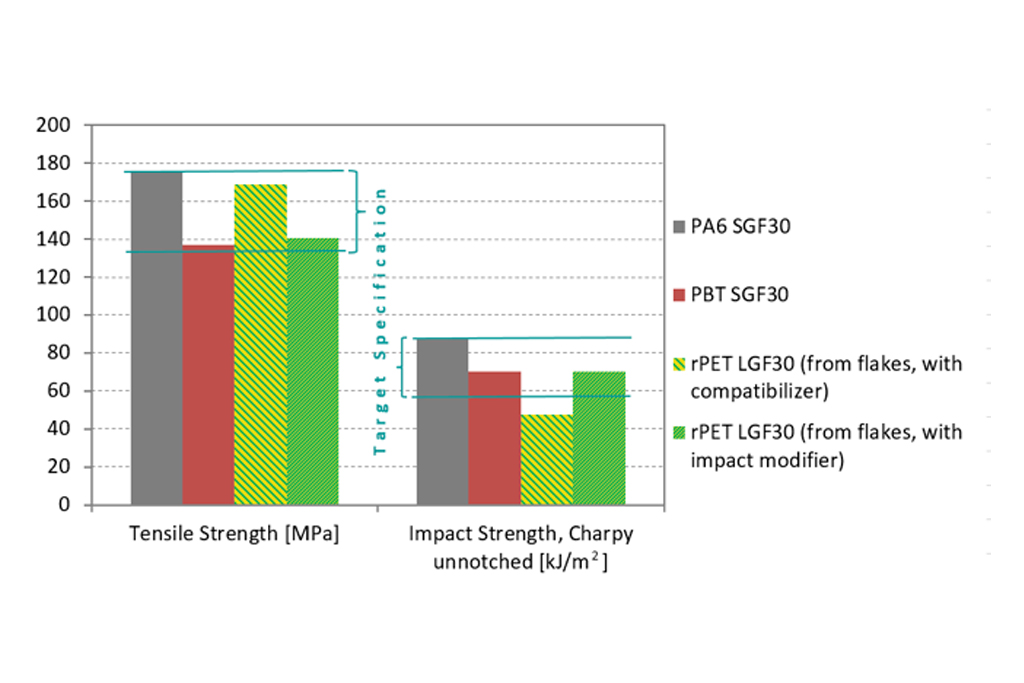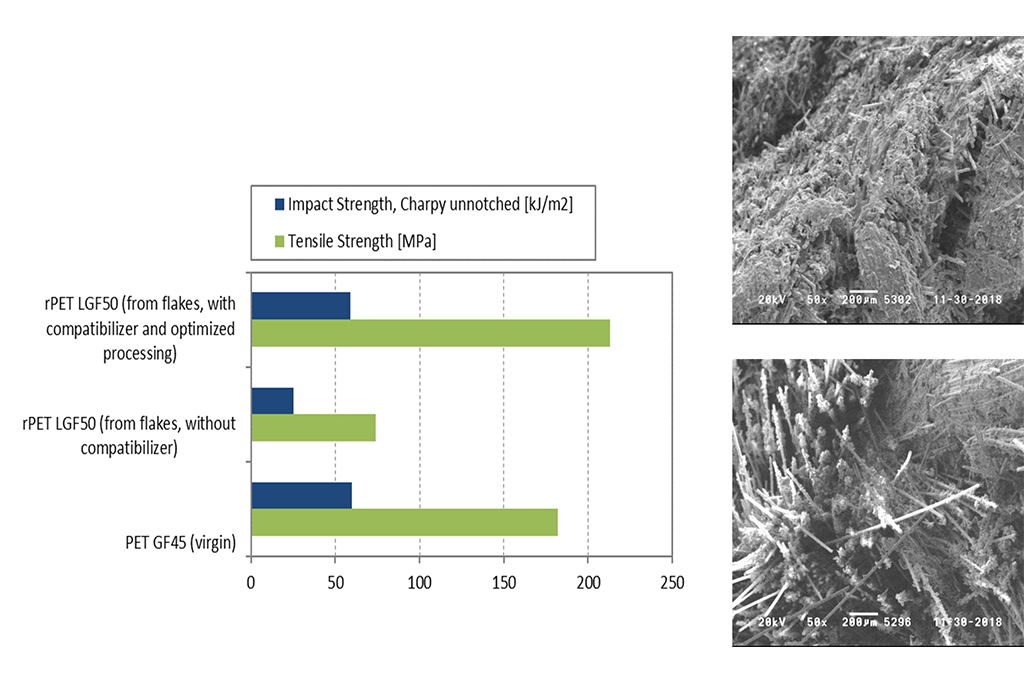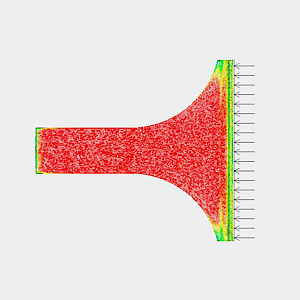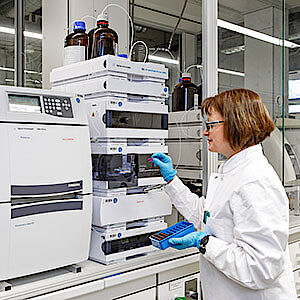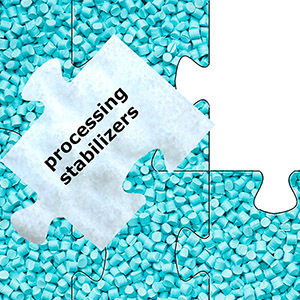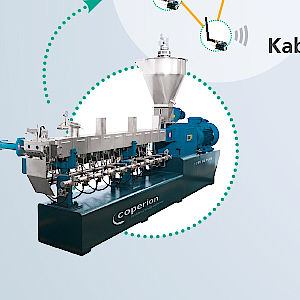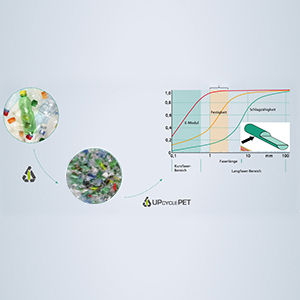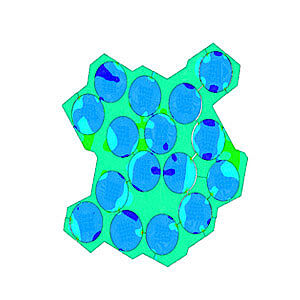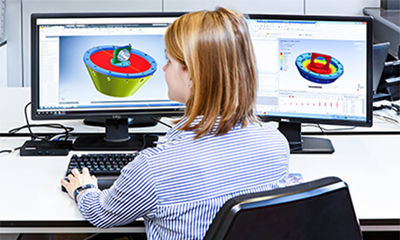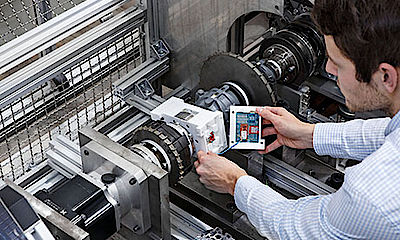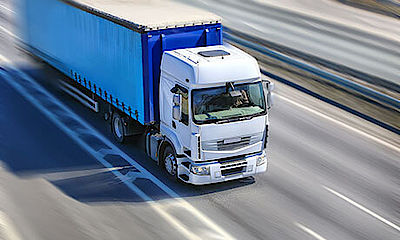New composites for durable engineering applications from used PET bottles.
Closed-loop economy, engineering plastics, plastic additives, process development, lightweight construction, sustainability
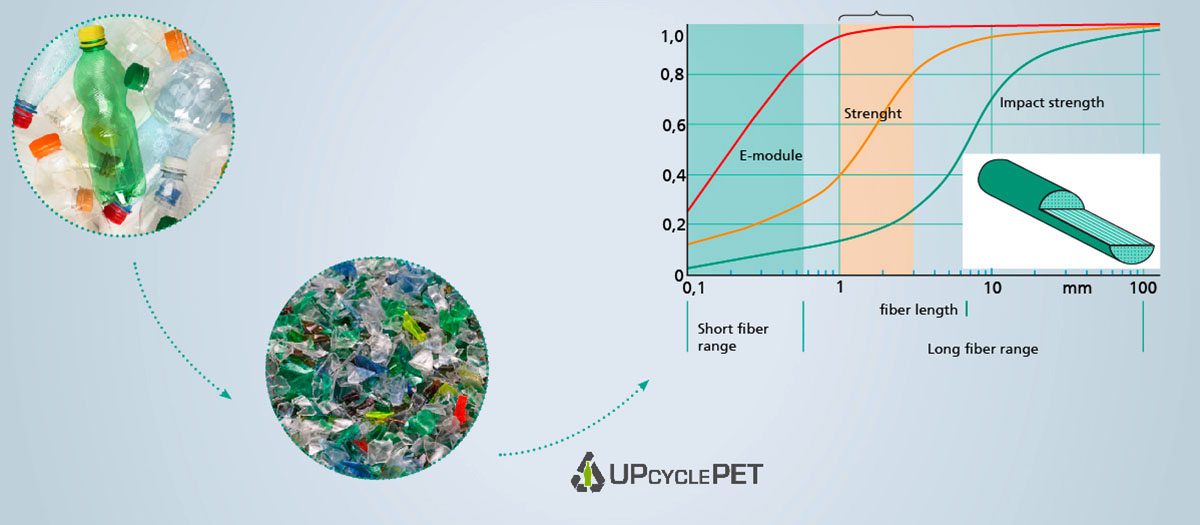
Plastic waste and its improper handling lead to global environmental problems. Packaging plastics are a particular problem, because they are disposed of after a short use cycle or released into the environment on landfill sites. One solution to this problem is to turn plastic waste from short lived consumer products into high-quality materials that find new application fields long-lasting technical products. In the ”UpcyclePET” research project, Fraunhofer LBF and EASICOMP GmbH (an expert in long glass fiber reinforced thermoplastics) are developing a new material based on used beverage bottles made of PET (polyethylene terephthalate). Potential target applications are automotive lightweight parts.
The standout feature of this approach is that so-called PET flakes from used beverage bottles are used directly in a highly integrated manufacturing process consisting of compounding and pultrusion. The mechanical benefits of the particularly stable long glass fibers are combined with the advantageous properties of PET, such as low swelling capacity and high dimensional stability.
Make good use of PET flakes from used beverage bottles
Custom-made plastic additives, combined with adapted process designing, are used to adapt the properties of the polymer melt and the composite material to meet specific requirements. The main focus here is on the mechanical properties of the composite. The project partners have set the goal of achieving the mechanical properties of glass fiber reinforced polyamide 6 (PA 6 SGF30) and polybutylene terephthalate (PBT SGF30) for the recyclate bottle flakes PET reinforced with long glas fibers. In contrast to the very well-defined virgin materials, recyclates pose special challenges in terms of process control and the formulation to be developed with regard to their quality (for example, foreign substances such as pigments) and in particular their additives intended for other applications (here bottles). Fraunhofer LBF contributes with its extensive expertise in additive formulation, characterization and evaluation of materials as well as the process development of engineering plastics.
In addition to the conception, design and optimization of the compounding and pultrusion process, the first part of the project has already produced promising formulations and material properties. The measured tensile strengths of selected formulations are within the target range of 135-170 MPa (see Fig. 1). In addition, impact strengths are achieved which are comparable to the virgin material composite PBT SGF30.
Sustainable new materials with improved properties
Numerous properties of PET, such as moisture sensitivity, degradation pattern during processing or slow crystallization, pose particular challenges in material development and process design. Furthermore, the specific requirements of the pultrusion process and the glass fiber composite must be taken into account (for example, with regard to viscosity limits and wettability of the glass filaments). This interaction and the targeted optimization require comprehensive understanding of the structure-properties relationship of the compounds and composites. Selected formulations in the UpcyclePET project were systematically studied using various characterisation methods.
One of these charaterisation methods is shown exemplary in the Fig. 2 and is related to the fiber-matrix adhesion. This was investigated through a scanning electron microscopy after a cold fracture of the sample. The use of a coupling agent and the modified process designing can significantly reduce the pull-out of fibers that are typically found in poor fiber-matrix adhesion and less wetting with the polymeric phase. This resultsed in a significant improvement in mechanical properties of composites.
Additional research at Fraunhofer LBF, for example on the crystallization behavior and morphology of the impact-modifying phases, provided a comprehensive understanding of the structure-property relationships for this system. This represents the scientific and technological base for the further optimisation of the formulation and process in a strong cooperation with EASICOMP. Implementation of UpcyclePET in a real demonstrator for the application in automotives is intensively accompanied by Fraunhofer LBF. Currently in these automotiv applications virgin material based on polyamide or PBT are used. On the contrary to these materials, the composite developed during this project has a strong potential of being cost-effective and sustainable at the same time.
For developing future wholistic of the complete upcycling solutions for similar materials from different feedstock sources Fraunhofer LBF offers its experties in the development of new formulations and adaptive process designing with the application oriented characterisation.
KMU-innovativ (Innovative SMEs): Resource efficiency and climate protection
Funding code: 033RK052C
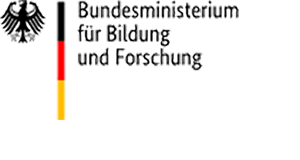
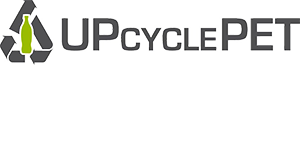
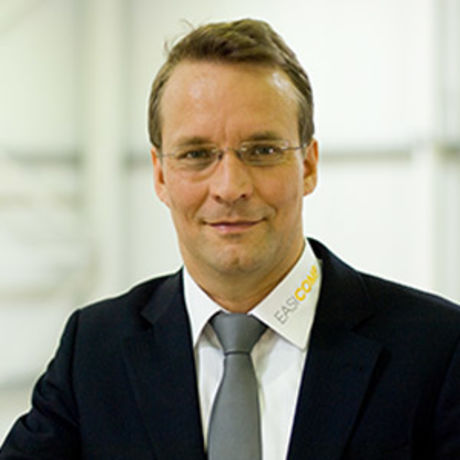
“The collaboration with Fraunhofer LBF works really well; we benefit from the high level of competence, the use of the shortest service route as needed; and above all we have the pleasure of working with nice people.” Dr. Tapio Harmia
CEO of EASICOMP GmbH
Contact
- Dr. Frank Schönberger
- Phone: +49 6151 705-8705
- frank.schoenberger@lbf.fraunhofer.de
- Shilpa Khare
- Phone: +49 6151 705-8739
- shilpa.khare@lbf.fraunhofer.de
